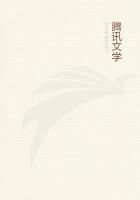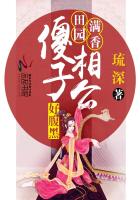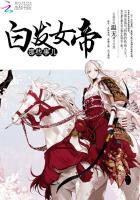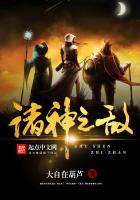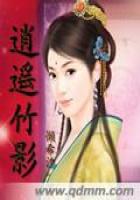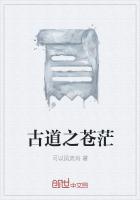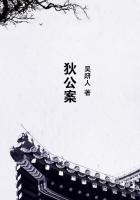He lived like this for about a year and a half, and towards the end of the second year a most startling thing happened to him. He discovered one day, to his great surprise, that, in addition to the relation of usefulness existing between people, there was also another, a peculiar relation of quite a different character. Instead of a man being wanted to clean boots, and go on errands and har-ness horses, he is not wanted to be of any service at all, but another human being wants to serve him and pet him. Suddenly Alyosha felt he was such a man.
He made this discovery through the cook Us-tinia. She was young, had no parents, and worked as hard as Alyosha. He felt for the first time in his life that he--not his services, but he himself --was necessary to another human being. When his mother used to be sorry for him, he had taken no notice of her. It had seemed to him quite natural, as though he were feeling sorry for him-self. But here was Ustinia, a perfect stranger, and sorry for him. She would save him some hot porridge, and sit watching him, her chin propped on her bare arm, with the sleeve rolled up, while he was eating it. When he looked at her she would begin to laugh, and he would laugh too.
This was such a new, strange thing to him that it frightened Alyosha. He feared that it might interfere with his work. But he was pleased, nev-ertheless, and when he glanced at the trousers that Ustinia had mended for him, he would shake his head and smile. He would often think of her while at work, or when running on errands. "A fine girl, Ustinia!" he sometimes exclaimed.
Ustinia used to help him whenever she could, and he helped her. She told him all about her life; how she had lost her parents; how her aunt had taken her in and found a place for her in the town; how the merchant's son had tried to take lib-erties with her, and how she had rebuffed him.
She liked to talk, and Alyosha liked to listen to her.
He had heard that peasants who came up to work in the towns frequently got married to servant girls. On one occasion she asked him if his par-ents intended marrying him soon. He said that he did not know; that he did not want to marry any of the village girls.
"Have you taken a fancy to some one, then?"
"I would marry you, if you'd be willing."
"Get along with you, Alyosha the Pot; but you've found your tongue, haven't you?" she ex-claimed, slapping him on the back with a towel she held in her hand. "Why shouldn't I?"
At Shrovetide Alyosha's father came to town for his wages. It had come to the ears of the mer-chant's wife that Alyosha wanted to marry Ustinia, and she disapproved of it. "What will be the use of her with a baby?" she thought, and in-formed her husband.
The merchant gave the old man Alyosha's wages.
"How is my lad getting on?" he asked. "I told you he was willing."
"That's all right, as far as it goes, but he's taken some sort of nonsense into his head. He wants to marry our cook. Now I don't approve of married servants. We won't have them in the house."
"Well, now, who would have thought the fool would think of such a thing?" the old man ex-claimed. "But don't you worry. I'll soon settle that."
He went into the kitchen, and sat down at the table waiting for his son. Alyosha was out on an errand, and came back breathless.
"I thought you had some sense in you; but what's this you've taken into your head?" his father began.
"I? Nothing."
"How, nothing? They tell me you want to get married. You shall get married when the time comes. I'll find you a decent wife, not some town hussy."
His father talked and talked, while Alyosha stood still and sighed. When his father had quite finished, Alyosha smiled.
"All right. I'll drop it."
"Now that's what I call sense."
When he was left alone with Ustinia he told her what his father had said. (She had listened at the door.)
"It's no good; it can't come off. Did you hear?
He was angry--won't have it at any price."
Ustinia cried into her apron.
Alyosha shook his head.
"What's to be done? We must do as we're told."
"Well, are you going to give up that nonsense, as your father told you?" his mistress asked, as he was putting up the shutters in the evening.
"To be sure we are," Alyosha replied with a smile, and then burst into tears.
From that day Alyosha went about his work as usual, and no longer talked to Ustinia about their getting married. One day in Lent the clerk told him to clear the snow from the roof. Alyosha climbed on to the roof and swept away all the snow; and, while he was still raking out some frozen lumps from the gutter, his foot slipped and he fell over. Unfortunately he did not fall on the snow, but on a piece of iron over the door. Us-tinia came running up, together with the mer-chant's daughter.
"Have you hurt yourself, Alyosha?"
"Ah! no, it's nothing."
But he could not raise himself when he tried to, and began to smile.
He was taken into the lodge. The doctor ar-rived, examined him, and asked where he felt the pain.
"I feel it all over," he said. "But it doesn't matter. I'm only afraid master will be annoyed.
Father ought to be told."
Alyosha lay in bed for two days, and on the third day they sent for the priest.
"Are you really going to die?" Ustinia asked.
"Of course I am. You can't go on living for ever. You must go when the time comes " Aly-osha spoke rapidly as usual. "Thank you, Us-tinia. You've been very good to me. What a lucky thing they didn't let us marry! Where should we have been now? It's much better as it is."
When the priest came, he prayed with his bands and with his heart. "As it is good here when you obey and do no harm to others, so it will be there," was the thought within it.
He spoke very little; he only said he was thirsty, and he seemed full of wonder at something.
He lay in wonderment, then stretched himself, and died.

